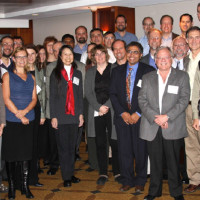
2013 Leadership in Science Policy Institute Accepting Nominations
As part of its mission to develop a next generation of leaders in the computing research community, the CRA’s Computing Community Consortium (CCC) announces the second offering of the CCC Leadership in Science Policy Institute (LiSPI), intended to educate computing researchers on how science policy in the U.S. is formulated and how our government works. We are currently seeking nominations for participants.







